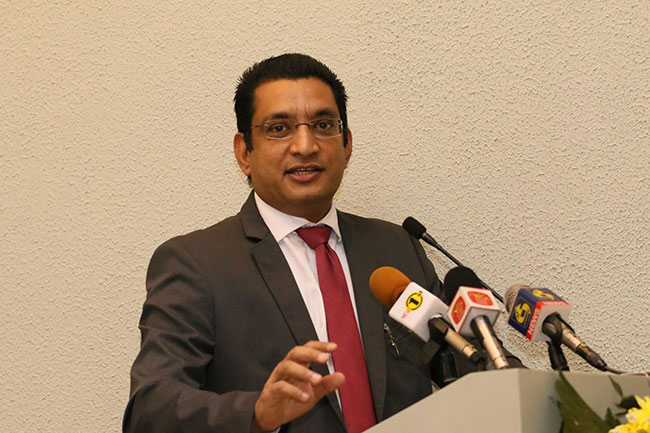BUSINESS
SL in urgent need of research-based policy decision-making – Minister of Foreign Affairs

‘Visiting foreign countries with a begging bowl was unpleasant and emotionally-taxing’
By Lynn Ockersz
Vital institutions of the Sri Lankan state, such as the Finance and Foreign Affairs Ministries, need to be headed by technocrats and professionally-adept personnel who would be inclined to make their policy decisions on solid, data-based research, Minister of Foreign Affairs M.U.M. Ali Sabry said.
‘Some countries in the South-east Asian region, although authoritarian in nature at one time, continued to witness steady and vibrant economic progress over the decades. This could be attributable to the fact that technocrats and scientifically-oriented persons were appointed to head their important ministries and were allowed to do their jobs without interference by the rulers concerned, Minister Sabry explained.
The Foreign Affairs Minister was making the inaugural address on August 9th at the launch of the Foreign Policy Forum by the Lakshman Kadirgamar Institute of International Relations and Strategic Studies (LKI), Colombo. The event, which was designed as the first of a monthly series of such deliberative forums, featured a panel discussion on the subject, ‘The Changing Global Dynamics: Implications for Sri Lanka’. The panel consisted of, Dr. Harinda Vidanage, Director, International Relations and Founding Director, Centre for Strategic Assessment of the Gen. Sir John Kotelawala Defence University, Dr. Dushni Weerakoon, Executive Director, Institute of Policy Studies, Sri Lanka, Dr. Jehan Perera, Executive Director, National Peace Council of Sri Lanka and Ambassador H.M.G.S. Palihakkara, former Foreign Secretary. Executive Director, LKI, Ambassador Ravinatha Aryasinghe, moderated the discussion.
It is of special significance that the holding of the forum coincides with the commemoration of the 18th death anniversary of former Foreign Minister Lakshman Kadirgamar, which falls on August 12th.
Minister Sabry added, among other things: ‘There are two choices before Sri Lanka in the present crisis-hit times: The country’s important political stakeholders could continue with the blame-game or resolve to fight together for Sri Lanka’s wellbeing. It was not pleasant for us to go around with a begging bowl seeking assistance for the country. Equally, it was emotionally-taxing. But it was pleasing to note that everyone whose assistance was asked for wanted to help Sri Lanka.
‘However, though not out of the woods the country has made a comeback. How did we manage to do it? That’s the question. But if we work with great diligence the way the late Lakshman Kadirgamar did, we should be able to put the country back on track. He compelled the international community to take Sri Lanka seriously. He was admired for the principled stance he took on foreign affairs and his vision bore fruition with the launching of the LKI, which today answers the need for a Sri Lankan foreign policy think tank of eminent standing.’
